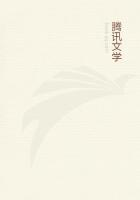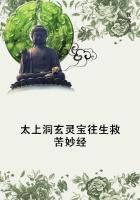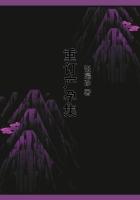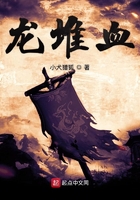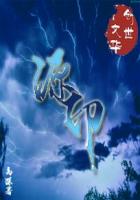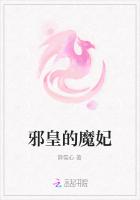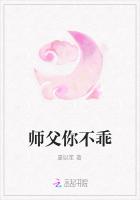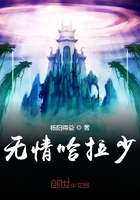The connection of Zennism with tea is proverbial.We have already remarked that the tea-ceremony was a development of the Zen ritual.The name of Laotse, the founder of Taoi**, is also intimately associated with the history of tea.It is written in the Chinese school manual concerning the origin of habits and customs that the ceremony of offering tea to a guest began with Kwanyin, a well-known disciple of Laotse, who first at the gate of the Han Pass presented to the "Old Philosopher" a cup of the golden elixir.We shall not stop to discuss the authenticity of such tales, which are valuable, however, as confirming the early use of the beverage by the Taoists.
Our interest in Taoi** and Zennism here lies mainly in those ideas regarding life and art which are so embodied in what we call Teaism.
It is to be regretted that as yet there appears to be no adequate presentation of the Taoists and Zen doctrines in any foreign language, though we have had several laudable attempts.
Translation is always a treason, and as a Ming author observes, can at its best be only the reverse side of a brocade,--all the threads are there, but not the subtlety of colour or design.But, after all, what great doctrine is there which is easy to expound? The ancient sages never put their teachings in systematic form.They spoke in paradoxes, for they were afraid of uttering half-truths.
They began by talking like fools and ended by ****** their hearers wise.Laotse himself, with his quaint humour, says, "If people of inferior intelligence hear of the Tao, they laugh immensely.It would not be the Tao unless they laughed at it."The Tao literally means a Path.It has been severally translated as the Way, the Absolute, the Law, Nature, Supreme Reason, the Mode.These renderings are not incorrect, for the use of the term by the Taoists differs according to the subject-matter of the inquiry.Laotse himself spoke of it thus: "There is a thing which is all-containing, which was born before the existence of Heaven and Earth.How silent! How solitary! It stands alone and changes not.It revolves without danger to itself and is the mother of the universe.I do not know its name and so call it the Path.With reluctance I call it the Infinite.Infinity is the Fleeting, the Fleeting is the Vanishing, the Vanishing is the Reverting." The Tao is in the Passage rather than the Path.It is the spirit of Cosmic Change,--the eternal growth which returns upon itself to produce new forms.It recoils upon itself like the dragon, the beloved symbol of the Taoists.It folds and unfolds as do the clouds.The Tao might be spoken of as the Great Transition.Subjectively it is the Mood of the Universe.
Its Absolute is the Relative.
It should be remembered in the first place that Taoi**, like its legitimate successor Zennism, represents the individualistic trend of the Southern Chinese mind in contra-distinction to the communism of Northern China which expressed itself in Confuciani**.The Middle Kingdom is as vast as Europe and has a differentiation of idiosyncrasies marked by the two great river systems which traverse it.The Yangste-Kiang and Hoang-Ho are respectively the Mediterranean and the Baltic.Even to-day, in spite of centuries of unification, the Southern Celestial differs in his thoughts and beliefs from his Northern brother as a member of the Latin race differs from the Teuton.
In ancient days, when communication was even more difficult than at present, and especially during the feudal period, this difference in thought was most pronounced.The art and poetry of the one breathes an atmosphere entirely distinct from that of the other.In Laotse and his followers and in Kutsugen, the forerunner of the Yangtse-Kiang nature-poets, we find an idealism quite inconsistent with the prosaic ethical notions of their contemporary northern writers.Laotse lived five centuries before the Christian Era.
The germ of Taoist speculation may be found long before the advent of Laotse, surnamed the Long-Eared.The archaic records of China, especially the Book of Changes, foreshadow his thought.But the great respect paid to the laws and customs of that classic period of Chinese civilisation which culminated with the establishment of the Chow dynasty in the sixteenth century B.C., kept the development of individualism in check for a long while, so that it was not until after the disintegration of the Chow dynasty and the establishment of innumerable independent kingdoms that it was able to blossom forth in the luxuriance of free-thought.Laotse and Soshi (Chuangtse) were both Southerners and the greatest exponents of the New School.
On the other hand, Confucius with his numerous disciples aimed at retaining ancestral conventions.Taoi** cannot be understood without some knowledge of Confuciani** and vice versa.
We have said that the Taoist Absolute was the Relative.
In ethics the Taoist railed at the laws and the moral codes of society, for to them right and wrong were but relative terms.Definition is always limitation--the "fixed" and "unchangeless" are but terms expressive of a stoppage of growth.Said Kuzugen,--"The Sages move the world."Our standards of morality are begotten of the past needs of society, but is society to remain always the same? The observance of communal traditions involves a constant sacrifice of the individual to the state.Education, in order to keep up the mighty delusion, encourages a species of ignorance.People are not taught to be really virtuous, but to behave properly.
We are wicked because we are frightfully self-conscious.

